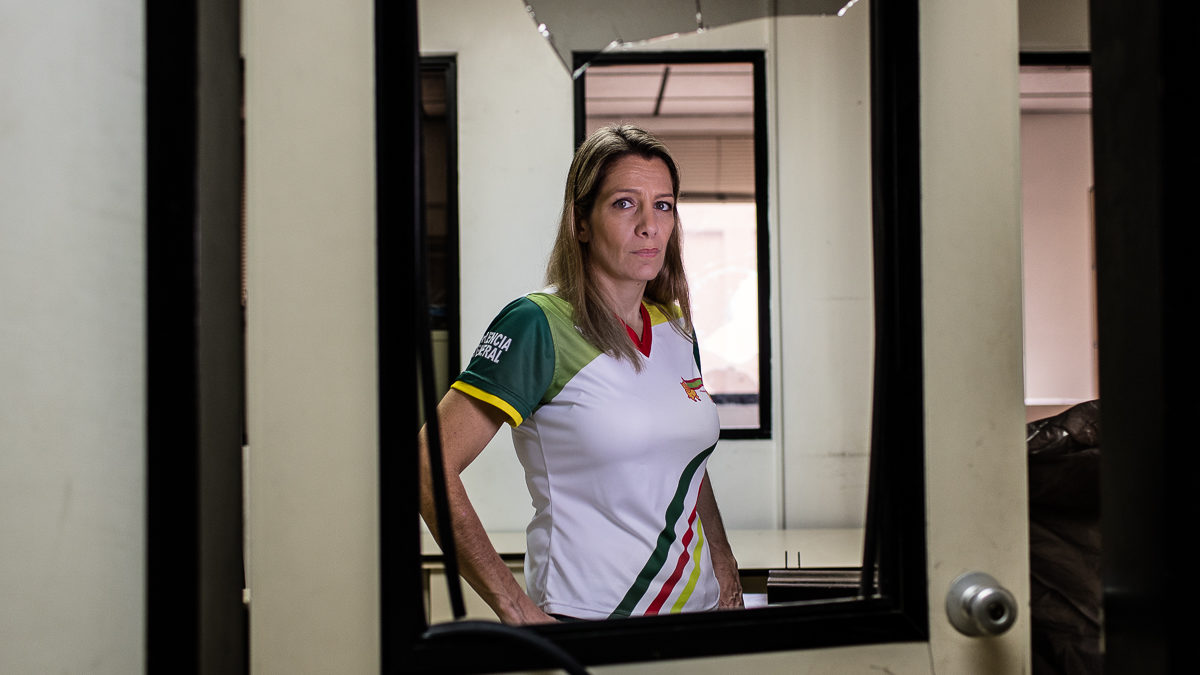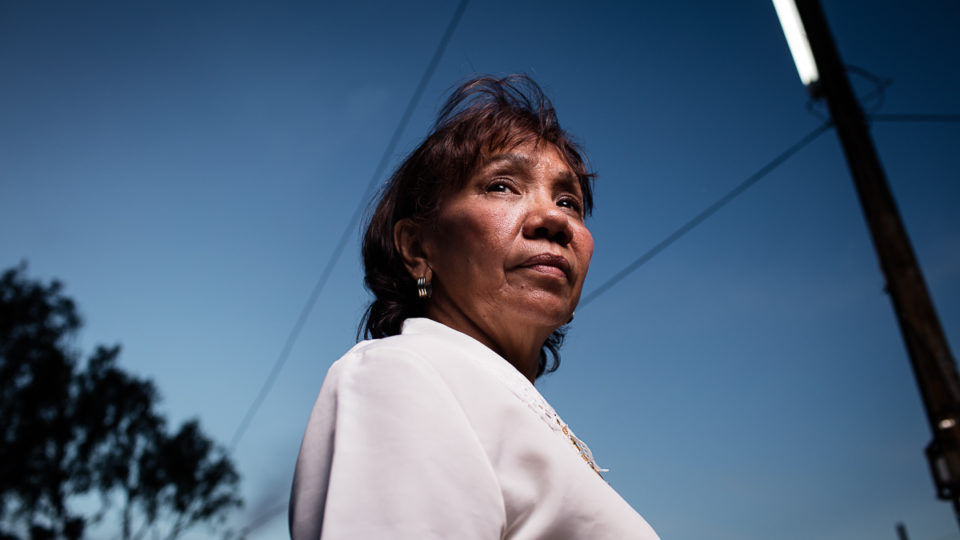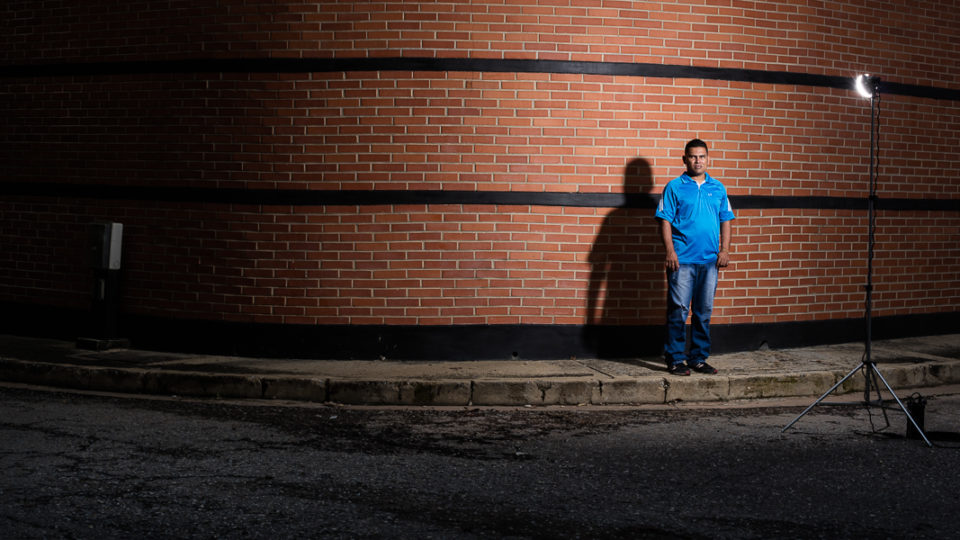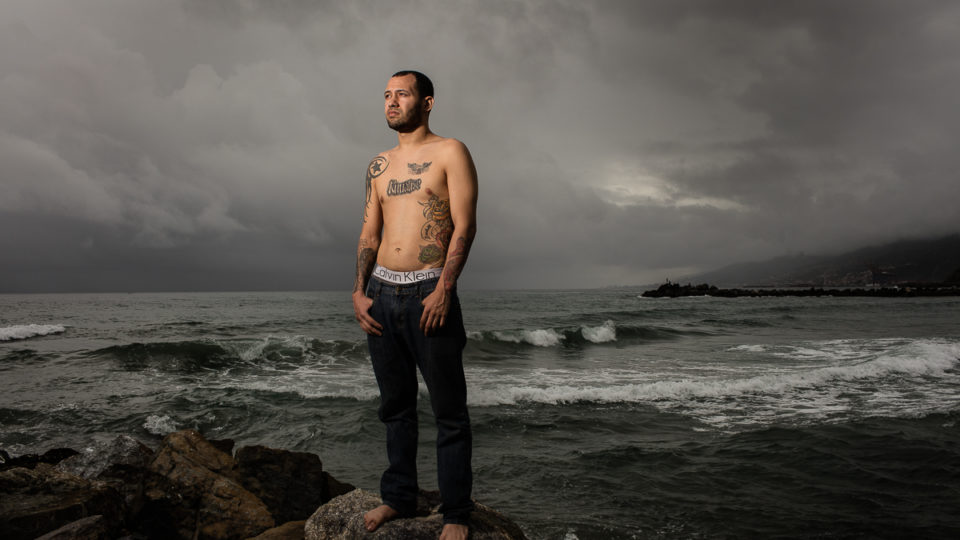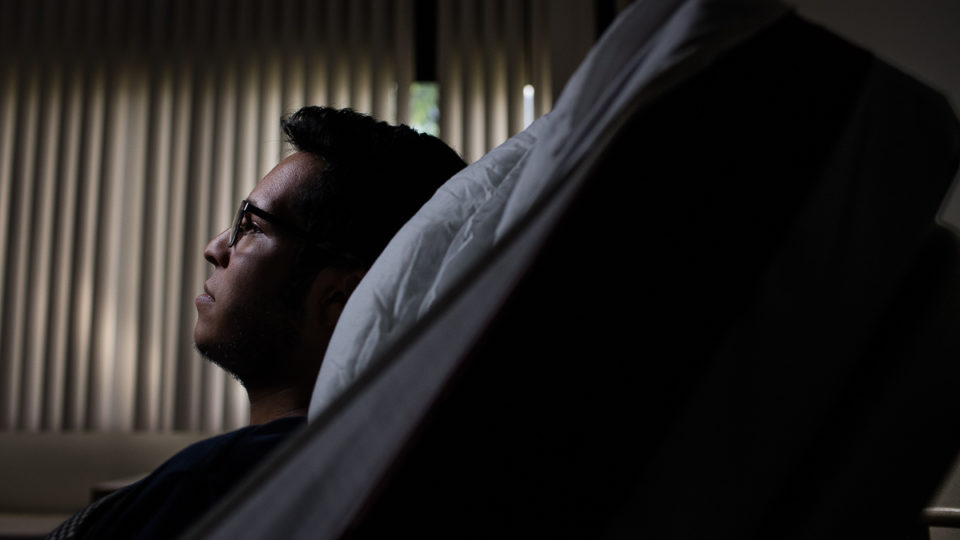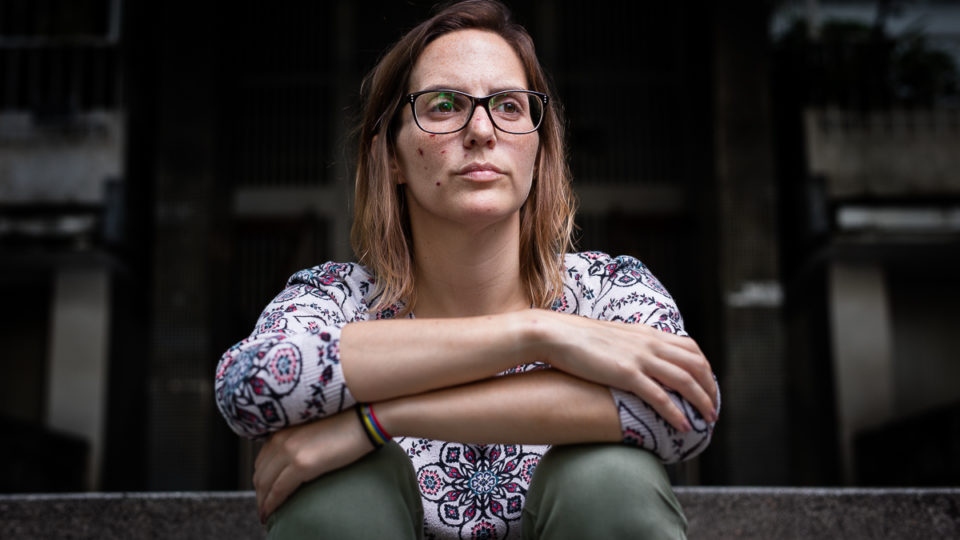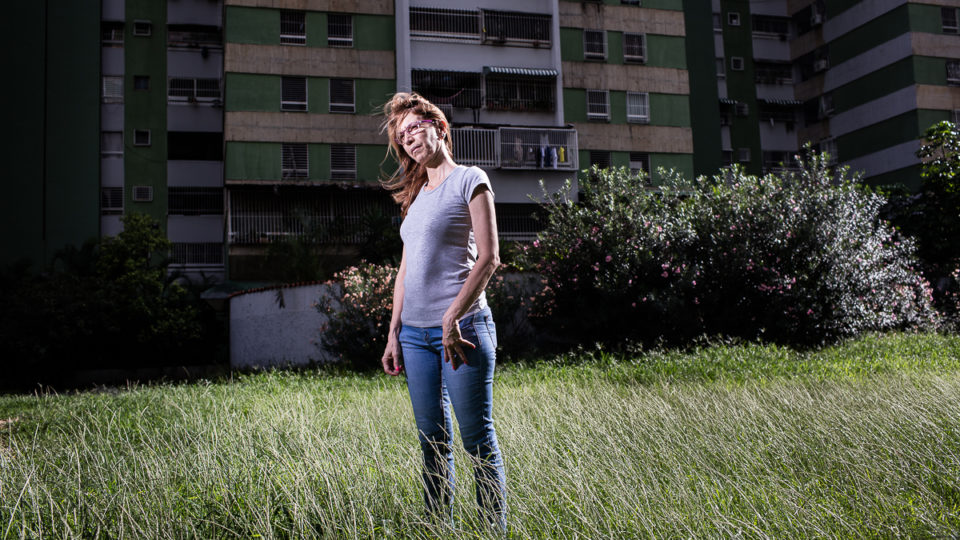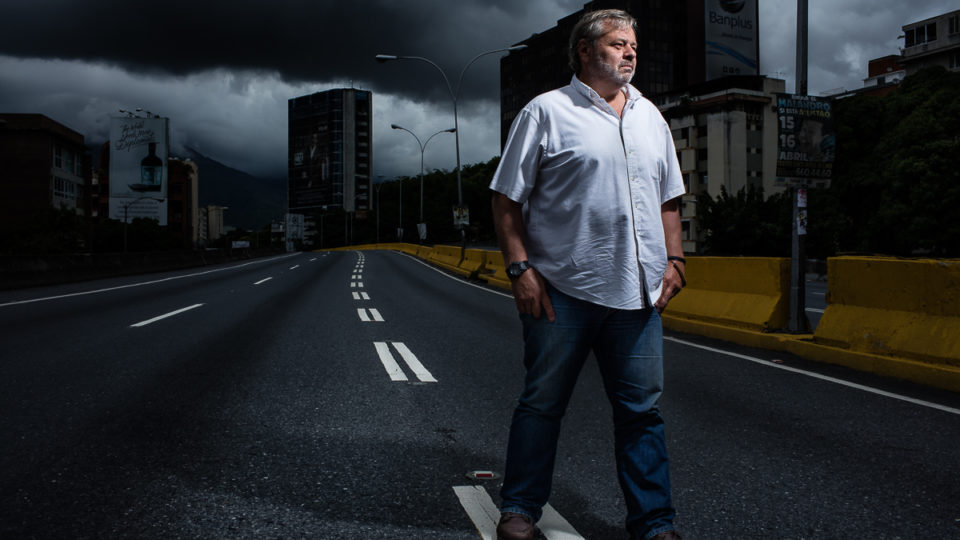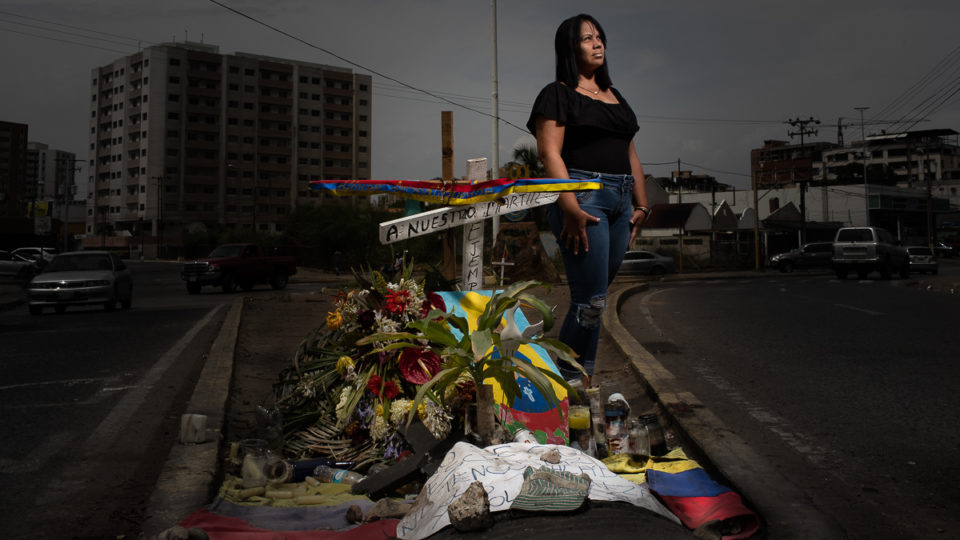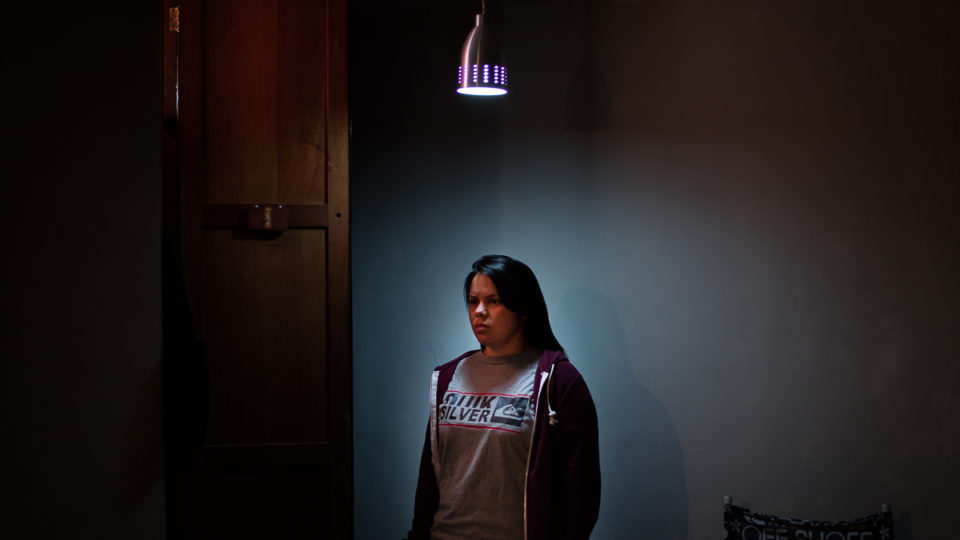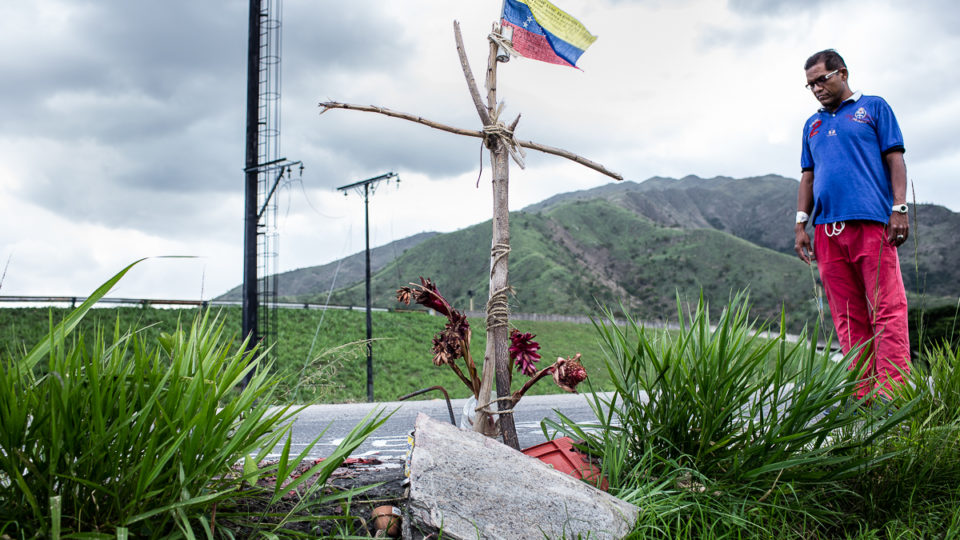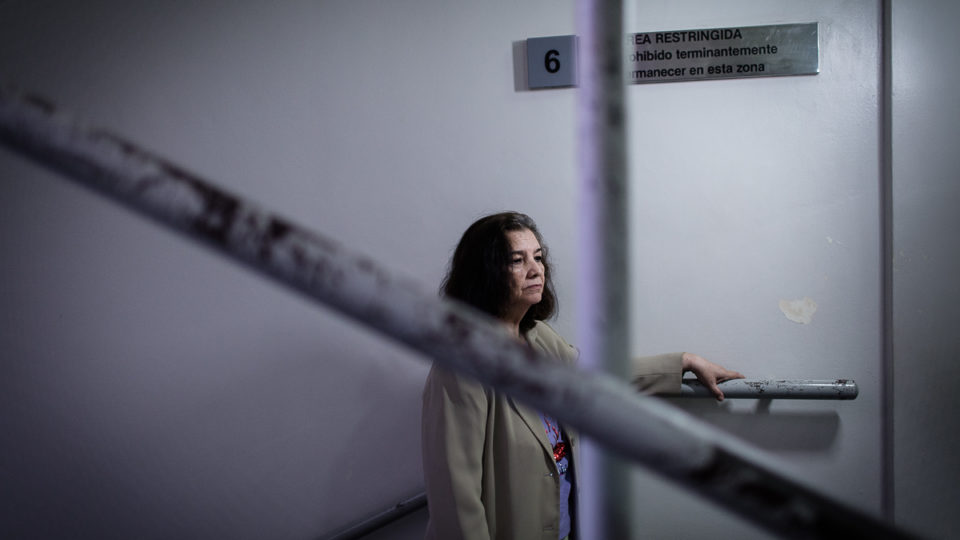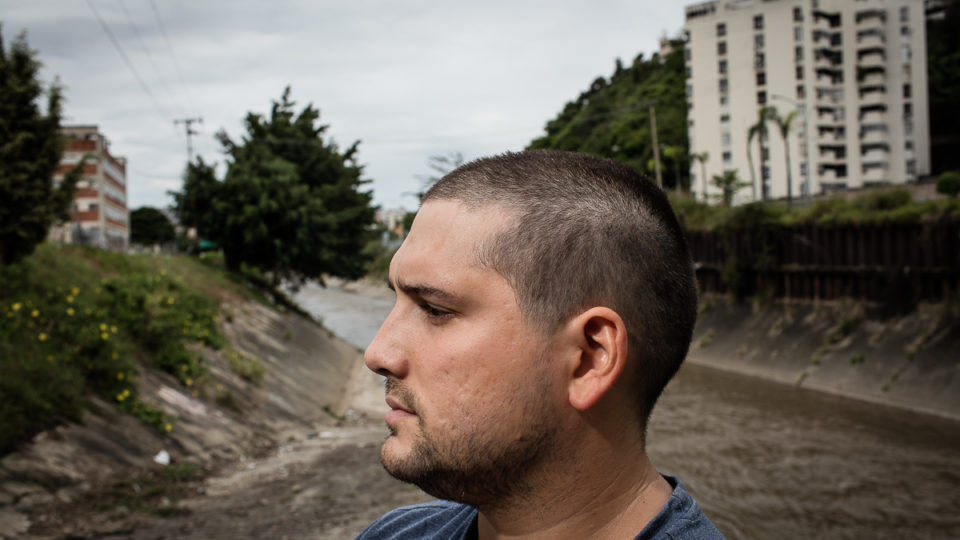Testimonies 2017
“Don’t put too much effort in, we’ll tear it down again”
Betty Amadio
May 2nd
“Around 2pm, the general manager called me to ask my permission to clear the staff from the factory. At that point, trucks on the (Valencia – Campo de Carabobo) highway just across from us were being looted.
Of the 235 employees, 231 left. Two bakers stayed. One maintenance man, one of the security staff and another from a private security company. [KB1]
At half past two the manager called again: ‘The rumor is that people are coming from a nearby barrio to loot Productos Amadio’.
My brother was at the ranch, out of signal. My cousin was at another ranch, also out of signal. With no other options, alone, I had to take control. I made some calls and managed to talk to the National Guard, at the same time as they were trying to control looting at the Chinese businesses in Naguanagua. They told me they’d keep an eye on it, not to worry.
I called the watchman. ‘González, don’t put up a fight, don’t risk your life. If people try to get in, tell them where we keep the finished products, the mortadellas, so they can go straight there, and open it for them’.
At that time, we had 85,000 kilos of products. We produce 20,000 kilos a day (600 tonnes a month) but because of the protests over the previous days, distributors didn’t want to risk their trucks being looted and produce had accumulated.
I thought about taking everything out and putting it on tables. For me looting means hungry people, and I thought it was wise not to put the company or employees at risk and to let them take the food. But I couldn’t get in touch with my brother or my cousin, and we make decisions as a family.
I thought about sending someone on a motorbike to the barrio to tell them that we’re giving away everything, to avoid trouble. It was just an idea. I didn’t do it. I saw it from a humanitarian point of view. To satisfy their hunger and to protect my facilities. All it would have taken was opening a couple of shutters.
‘Señora Betty, the people are coming, the people are coming!’
At 9pm, they entered. González let them in and they went straight to the factory. From there they took raw materials from the freezers, unfinished meat products that weren’t fit for consumption yet. Raw hams and mortadellas in their molds, waiting to be cooked. There was an epidemic of diarrhoea in the area after the looting.
Thirty minutes later the National Guard arrived and the people left the way they came. Situation under control.
They came in through a hole they opened in the workers’ bathroom, as that wall faced the barrio.
I was desperate to be there and not at home.
There was a lot of damage. They couldn’t open the cellar where the finished products were kept. Molds had been spilt, legs of ham were on the floor, machines had been broken. In the offices, there were only a few broken windows.
May 3rd
We spent the whole morning surveying the damage, picking things up and cleaning. I thought that’s what looting was like, a day and then it’s over.
While we were covering up the hole in the bathroom, men, women and children appeared and told us, ‘Relax, we’ll open that again soon. Don’t put too much effort in, we’ll tear it down again’.
My sister, wary, decided to remove some computers from the offices as a preventative measure, in case something more happened.
At 3pm, a thousand people came in. Ringleaders, women, old ladies, old men, children. They bashed into each other trying to get through the plastic curtains which keep the cold in the cellars. Children emerged hugging a ham and their mothers cheered. A trophy, hard won from there. The National Guard sent two tanks, but before that they took boots, knives, parts of the grinder, computers, all the finished products, toilets, sinks, all of the staff medical supplies, the tables and chairs from the canteen, uniforms, cassava starch, flour, pepper, salt, spare parts, the intestines for the mortadellas, molds, cement, telephones, gloves, cutlery, the contents of the workers’ lockers, tyres and batteries from all of the cars, trucks, animal cages, freezer trucks, and the company’s ambulance.
They left the gurney behind.
The National Guard managed to get the people out and left. They said they had other situations to deal with.
The people came back.
They attacked the offices, broke all the windows, the doors, the photo frames, the photos of the grandchildren. They took my father’s briefcase, which, since his death two years ago, had kept me company next to his desk, now mine. That made me cry.
They left flip-flops, flip-flops strewn everywhere. They’d taken them off to put on boots so they wouldn’t slip on the mess they’d made.
The private security guards took whatever the people hadn’t taken.
Seventy percent of our production is in poor areas. The people who looted us used to eat our mortadella. Now there isn’t any.
If my father had been here, he would have said ‘This is nothing compared to what I lived through in the war’ (the Second World War). He would have given me strength.
My father, Tomasso Amadio, came from Italy through La Guaira port in 1950, at 20 years old. He had a peasant’s passport, even though he wasn’t one. He ended up in Valencia, working in construction, until he won a job in a slaughterhouse, cutting the meat from the bones. He became manager, and then owner, and finally fulfilled his dream: opening a cold meats factory.
I believe in decrees. When I was kidnapped (2003), I said the day I would be set free and that’s how it was, exactly 40 days.
There’s nothing more dangerous than an Italian with a project up his sleeve, and that’s how I was raised. My father was grateful to be among those who could give and not those who had to beg. His motto was: work, work, and more work.
Now I must prove whether I learned that or not.
We have an insurance policy, but it won’t pay out until we’re operating again. That’s what insurance small print is like.
I decree that on Thursday July 13th 2017, on the day of its fiftieth anniversary, Productos Amadio will start production again.”
Betty Amadio, 47, Veterinarian at the Central University of Venezuela
